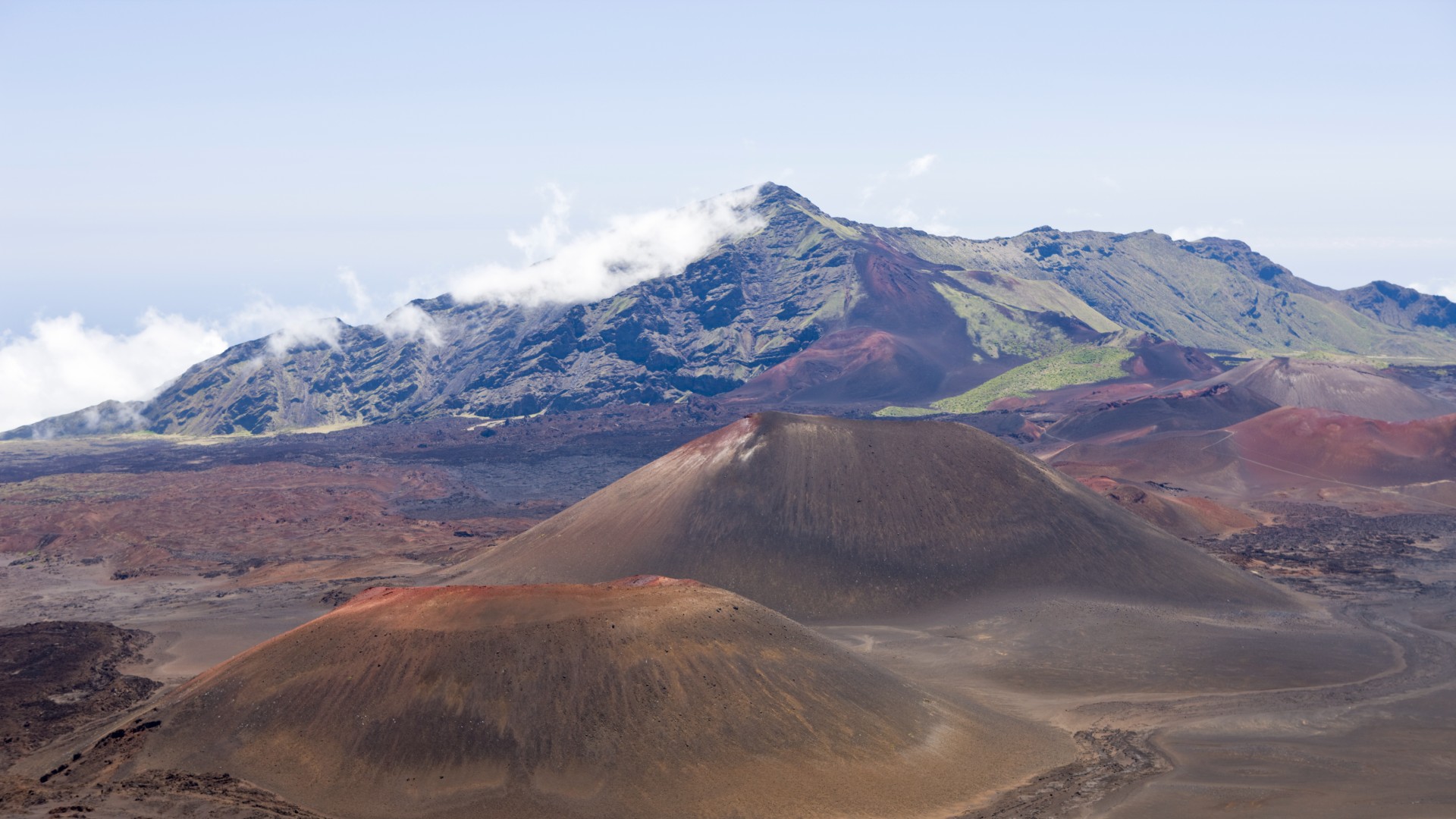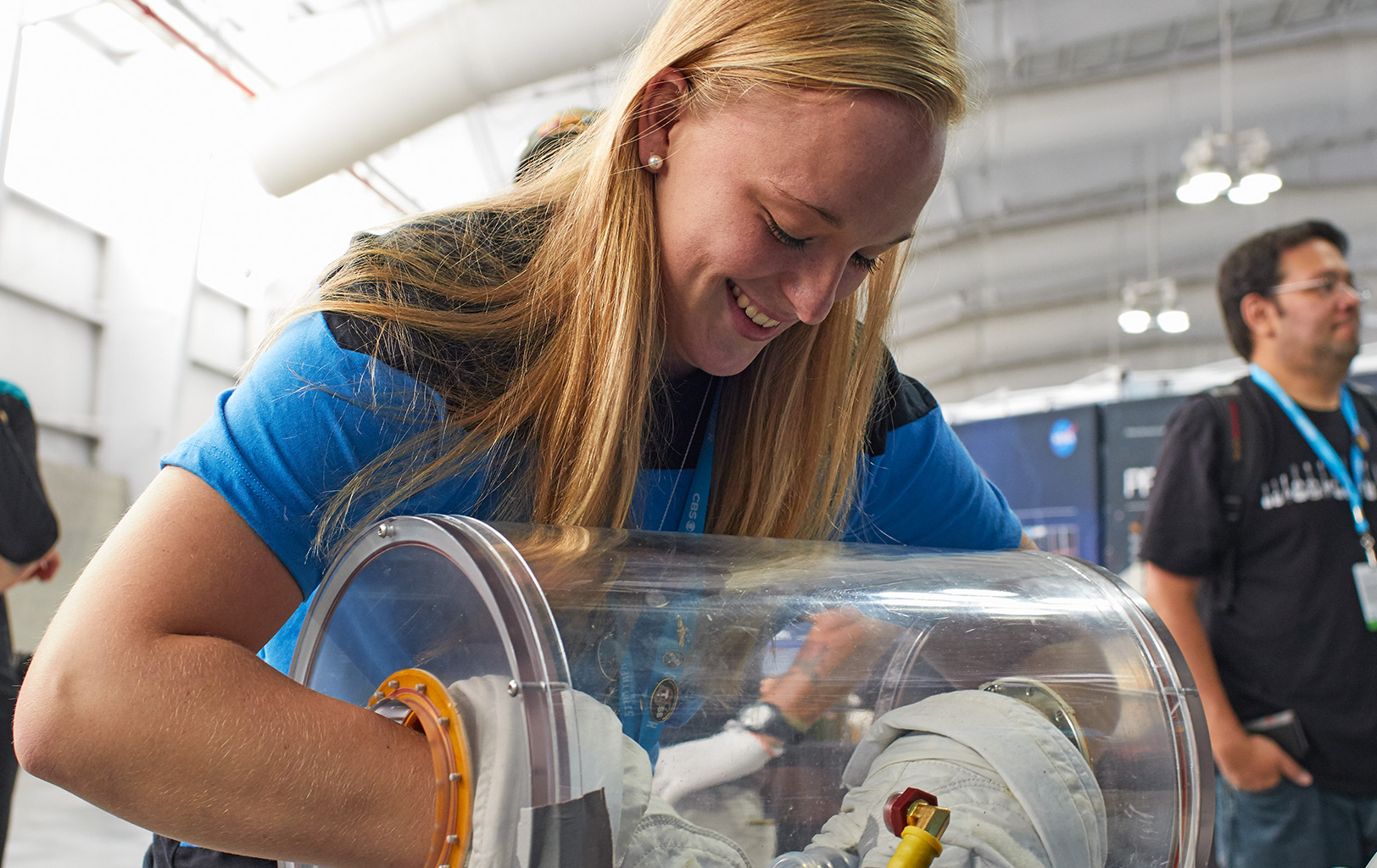Space Force wants 7 new telescopes in Hawaii. Local residents say 'no'
Native Hawaiians feel the telescope project is disrespectful to sacred land.

Many Hawaii residents oppose plans from the U.S. Space Force to build a suite of new telescopes designed to track satellites and prevent them from colliding in orbit.
The Department of the Air Force has proposed building up to seven new telescopes and an optics lab on the summit of Haleakala on the Hawaiian Island of Maui. The project, called the Air Force Maui Optical and Supercomputing Site Small Telescope Advanced Research (AMOS STAR) facility, would occupy about an acre of land near the Haleakalā Observatory. A series of three public scoping meetings about the project were held between May 13 -15, allowing community members to voice their concerns as an Environmental Impact Statement (EIS) is being drafted to outline how the project could impact its surrounding environment.
At one of the recent meetings, local Hawaiians strongly voiced their opposition to the construction of the telescope, Hawaii News Now reported. "This project is not merely about stars and satellites," a resident said at a meeting on May 14. "It is a continuation of settled colonial projects."
Related: Orbital 'parking spots' could help prevent satellite traffic jams
"Over the last two nights, I think there must be at least 99 percent 'no,'" another resident said during one of the meetings, Hawaii News Now reported. "Is that enough? If not, what will it take?"
Despite the objections, U.S. military officials stress that it is necessary for U.S. national security and space domain awareness.
"As more things are in orbit, more objects, there's more potential for collision," a military official said during a public meeting on May 14 at the Mayor H. Tavares Community Center in Pukalani, according to Hawaii News Now. "With more objects in space, we need more telescopes to more frequently track the objects in space."
Get the Space.com Newsletter
Breaking space news, the latest updates on rocket launches, skywatching events and more!
The U.S. Space Force has previously faced criticism surrounding the proposed AMOS STAR facility in prior meetings, especially after 700 gallons of diesel fuel leaked from a malfunctioning generator at the space surveillance complex last year. Native Hawaiians claim the project is desecrating sacred spaces and is negatively impacting their mental, emotional and spiritual health.
Other telescope projects on Hawaiian islands have faced similar opposition in the past.
Plans for the AMOS STAR facility include up to seven telescopes enclosed in domes that would be constructed on a developed site adjacent to the Haleakalā Observatory and the 15th Space Surveillance Squadron (15 SPSS) Maui Space Surveillance Complex (MSSC), from which the new telescopes would be primarily operated remotely. Building the new facility would require fiber optic links from the MSSC, a paved access drive and parking facilities, surface water runoff management measures, and other site improvements.
Public comments on the proposed site will be accepted through June 7 and can be submitted on the project website at www.amosstareis.com, via email to amosstareis@tetratech.com, or mailed to AMOS STAR EIS c/o Tetra Tech, 1230 Columbia St., Ste. 1000, San Diego, CA 92101.
Join our Space Forums to keep talking space on the latest missions, night sky and more! And if you have a news tip, correction or comment, let us know at: community@space.com.

Samantha Mathewson joined Space.com as an intern in the summer of 2016. She received a B.A. in Journalism and Environmental Science at the University of New Haven, in Connecticut. Previously, her work has been published in Nature World News. When not writing or reading about science, Samantha enjoys traveling to new places and taking photos! You can follow her on Twitter @Sam_Ashley13.
-
sciencecompliance The mountain literally spits lava, but a few buildings is sacrilege? Give me a break. Even 700 gallons of diesel fuel is nothing compared to the environmental havoc caused by a volcanic eruption.Reply -
AlbusRockets Reply
I believe you're thinking of Mauna Loa or Kilauea. Haleakala volcano hasn't erupted in some 500 years; so no, it does not "literally spit lava" at least not in the manner to which you're implying.sciencecompliance said:The mountain literally spits lava, but a few buildings is sacrilege? Give me a break. Even 700 gallons of diesel fuel is nothing compared to the environmental havoc caused by a volcanic eruption.
Furthermore, demeaning an entire group of people because they find portions of their land to be culturally significant is extremely classless. -
Cisventure Astronot Replysciencecompliance said:The mountain literally spits lava, but a few buildings is sacrilege? Give me a break. Even 700 gallons of diesel fuel is nothing compared to the environmental havoc caused by a volcanic eruption.
Don't "let the perfect be the enemy of the good", "Two wrongs don't make a right", etc.
Also, this isn't (entirely) about the environment. It's about their culture/religion. Try to be more empathic. You ask "The mountain literally spits lava, but a few buildings is sacrilege?", but what if the answer is just… "Yes"? You can't decide what's sacrilege to them, and you'd probably be upset if they tried to force their beliefs on you.
scennimo said:negatively impacting their mental, emotional and spiritual health, yeah, right!!
Why is this hard to believe?
AlbusRockets said:Furthermore, demeaning an entire group of people because they find portions of their land to be culturally significant is extremely classless.
I don't think he was "demeaning an entire group of people", because his post never left the scope of a rebuttal (even though I disagree with him). The closest he got to demeaning was saying "Give me a break.", but I think that's reasonable. -
sciencecompliance ReplyAlbusRockets said:I believe you're thinking of Mauna Loa or Kilauea. Haleakala volcano hasn't erupted in some 500 years; so no, it does not "literally spit lava" at least not in the manner to which you're implying.
Furthermore, demeaning an entire group of people because they find portions of their land to be culturally significant is extremely classless.
500 years is nothing in geological timescales, certainly less time than the Hawaiian people have been on the island, and religion is a bad justification for anything, regardless of which culture it comes from. I apply the same standard to white Europeans in case you were wondering. Space domain awareness is more important than some people's superstition. -
sciencecompliance ReplyCisventure Astronot said:Don't "let the perfect be the enemy of the good", "Two wrongs don't make a right", etc.
Also, this isn't (entirely) about the environment. It's about their culture/religion. Try to be more empathic. You ask "The mountain literally spits lava, but a few buildings is sacrilege?", but what if the answer is just… "Yes"? You can't decide what's sacrilege to them, and you'd probably be upset if they tried to force their beliefs on you.
I don't care about their or anyone else's religion (including people of European descent). What I care about is space domain awareness. They can still be superstitious with a few buildings on top of that mountain. -
Cisventure Astronot Replysciencecompliance said:500 years is nothing in geological timescales, certainly less time than the Hawaiian people have been on the island
Why does that matter? Geology was never mentioned. 500 years is significant in ecological timescales, certainly more time than any Hawaiian person has been on the island.
sciencecompliance said:I don't care about their or anyone else's religion
That's a fair statement. If they can oppose because of their beliefs, then you can support because of yours (assuming you're an American, and this is federal land). -
sciencecompliance ReplyCisventure Astronot said:Why does that matter? Geology was never mentioned. 500 years is significant in ecological timescales, certainly more time than any Hawaiian person has been on the island.
Geology was never mentioned? That's literally what we're talking about. Wikipedia states that the Polynesians arrived in Hawaii between 940 and 1200 A.D. This means that that mountain has erupted since they've been there, so the idea that it would be some immutable thing according to their culture is just wrong or indicative of their lack of historical record-keeping.
That's a fair statement. If they can oppose because of their beliefs, then you can support because of yours (assuming you're an American, and this is federal land).
Not all beliefs are equal. This is an asinine point. Maybe all superstitious beliefs are equally bad, but that's not what I'm espousing. I would say the same thing to people who think Jesus rose from the dead (he didn't). One side of this argument is invoking religion, and the other is trying to gain space domain awareness to improve infrastructure that meaningfully impacts people's well-being and possibly assess potential threats above our heads. They're not comparable lines of argumentation. -
Cisventure Astronot Replysciencecompliance said:Geology was never mentioned? That's literally what we're talking about.
I'm sorry that I wasn't clear. /gen I meant that it doesn't seem to be a part of either the Hawaiian's argument or the USSF's. I shall rephrase my statement:
The fact that "500 years is nothing in geological timescales" has no relevance to this argument. Working on geological timescales arguably renders the wills of the USA and its people negligible because the USA hasn't even lived for 500 years, which is "nothing".
The USSF wants to do something for strategic reasons, but the Hawaiians oppose for ecological and cultural reasons. No one cares that 500 years is considered fast in geology. @AlbusRockets' argument still stands.
sciencecompliance said:that mountain has erupted since they've been there, so the idea that it would be some immutable thing according to their culture is just wrong
I've never heard of this idea. Do you have a source for it?
sciencecompliance said:Not all beliefs are equal.
I didn't attest to any belief's validity. Because I'm not so arrogant, I don't realize that everyone thinks that what they think is correct is correct even if it isn't.
sciencecompliance said:One side of this argument is invoking religion, and the other is trying to gain space domain awareness to improve infrastructure that meaningfully impacts people's well-being and possibly assess potential threats above our heads. They're not comparable lines of argumentation.
That's pretty reductive of the Hawaiian's side. One stated "It is a continuation of settled colonial projects.", which implies that it's also about them feeling disrespected. The federal government disrespecting a minority of it's people is way more than saying the word "religion", let alone the ecological concerns.
You also inflated the USSF's side. A more accurate description would be "they're trying to improve space domain awareness.", or you could say "One side is invoking government interests.".
So I agree that "They're not comparable lines of argumentation.", because you misrepresented your opposition. -
Unclear Engineer What is the distinction between "sacred place" and "not in my backyard"?Reply
The distinction appears to be that "sacred" applies to beliefs that were (at least allegedly) in existence before the people holding those beliefs were over run by a different culture that does not hold the same beliefs, but feels the need to show some respect to the culture that it conquered.
There will always be some people who would prefer to see things remain as they are. And, some will not like loosing access to places that they once held as "special" to their feeling of comfort.
Although nobody would respect my feelings as "sacred", I have watched the wild places that I used to visit as a child and young adult get bulldozed into unrecognizable condition and then covered with industries and seemingly endless tracts of suburban housing and strip malls. I definitely feel the loss. In my mind's eye, I can still see the previous conditions of these places that are no longer as they were. In one place, I can stand on a huge rock that was not moved, close my eyes and see the world of my youth spread out where it once was. But, then opening my eyes hurts my sense of well being and control of my own destiny.
So, I can relate. But, it ultimately comes down to a social and political decision. What do we set aside to remain as it has been in our memories and our ancestors' memories, and what do we allow others to change in the name of "progress". As human populations increase, and conflicts increase along with the population, we will have fewer and fewer places that will remain untouched.










